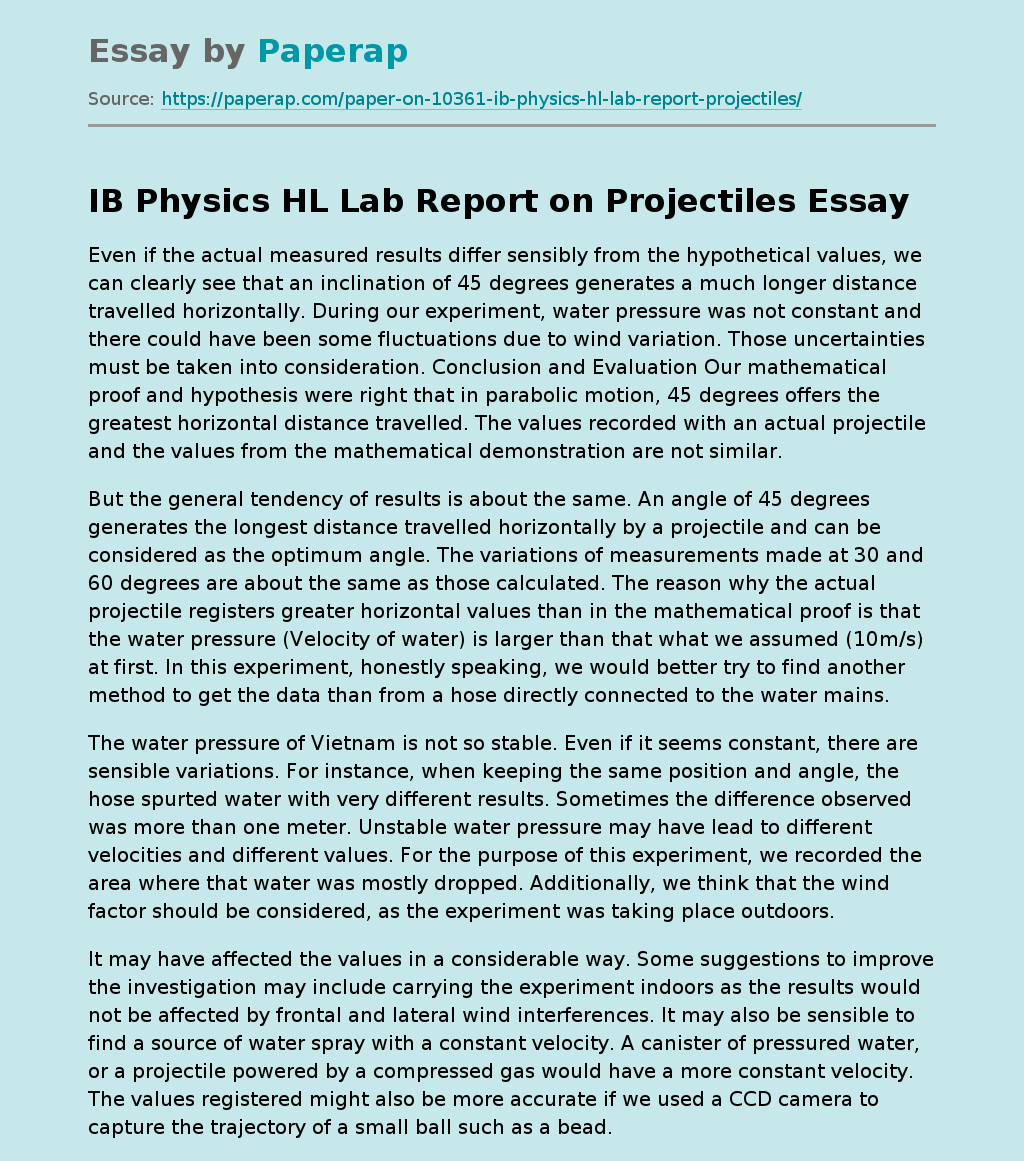IB Physics HL Lab Report on Projectiles
Even if the actual measured results differ sensibly from the hypothetical values, we can clearly see that an inclination of 45 degrees generates a much longer distance travelled horizontally. During our experiment, water pressure was not constant and there could have been some fluctuations due to wind variation. Those uncertainties must be taken into consideration. Conclusion and Evaluation Our mathematical proof and hypothesis were right that in parabolic motion, 45 degrees offers the greatest horizontal distance travelled. The values recorded with an actual projectile and the values from the mathematical demonstration are not similar.
But the general tendency of results is about the same. An angle of 45 degrees generates the longest distance travelled horizontally by a projectile and can be considered as the optimum angle. The variations of measurements made at 30 and 60 degrees are about the same as those calculated. The reason why the actual projectile registers greater horizontal values than in the mathematical proof is that the water pressure (Velocity of water) is larger than that what we assumed (10m/s) at first.
In this experiment, honestly speaking, we would better try to find another method to get the data than from a hose directly connected to the water mains.
The water pressure of Vietnam is not so stable. Even if it seems constant, there are sensible variations. For instance, when keeping the same position and angle, the hose spurted water with very different results. Sometimes the difference observed was more than one meter. Unstable water pressure may have lead to different velocities and different values.
For the purpose of this experiment, we recorded the area where that water was mostly dropped. Additionally, we think that the wind factor should be considered, as the experiment was taking place outdoors.
It may have affected the values in a considerable way. Some suggestions to improve the investigation may include carrying the experiment indoors as the results would not be affected by frontal and lateral wind interferences. It may also be sensible to find a source of water spray with a constant velocity. A canister of pressured water, or a projectile powered by a compressed gas would have a more constant velocity. The values registered might also be more accurate if we used a CCD camera to capture the trajectory of a small ball such as a bead.
IB Physics HL Lab Report on Projectiles. (2017, Dec 10). Retrieved from https://paperap.com/paper-on-10361-ib-physics-hl-lab-report-projectiles/

